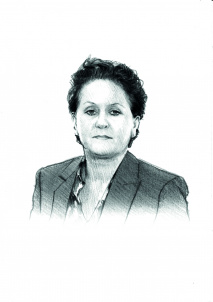
A column from Institute of Financial Wellbeing founder Chris Budd on Money Marketing recently caught my eye.
Entitled, Targeting luxury misses the point of being an adviser, Budd argues, “It is the pursuit of wealth which is a distraction from the point of life: gaining wellbeing and contentment through helping those less fortunate than you.”
The world would be a wonderful place if we all had enough money, assets and no debt to help those less fortunate. But, sadly, the vast majority of people across the world do not have sufficient wealth to help others outside their families.
In the UK, food inflation is at 16.7% and the cost of gas is almost 130% higher than a year ago.
In November, the Office for Budget Responsibility forecast households’ disposable income would fall by 4.3% in 2022-23, the largest drop since comparable records began in 1956.
People are making every effort to keep their family financially secure and cutting costs is a priority.
The majority of Brits who say financial advice is too expensive are aged 55 and above
Whether you like it or not, advice fees are seen as an expensive luxury.
Indeed, in December, the Financial Conduct Authority reported advisers charge an average of 2.4% of the amount invested initially and 0.8% per annum for ongoing advice (1.9% per annum with underlying product and portfolio charges factored in).
According to My Pension Expert, the majority of Brits who say financial advice is too expensive to consider are aged 55 and above.
This is hugely concerning, as it is those in this at-retirement age bracket that arguably need advice the most.
Facing a plethora of important choices which are then set for the rest of their lives, it is doubly important these people attain truly personal advice, not broad-brush guidance that cannot answer the most vital question of all: which product and which provider?
It is the bedrock of financial planning to include all income in cash flow calculations. The state pension is a vital source of income for the 12.5 million over 65-year-olds.
People with a financial adviser end up with more money than those without
The at-retirement population needs to know the option to allow ‘gaps’ in National Insurance (NI) contributions will end soon. Up to now, people have been able to go back and make payments to fill gaps for any year from 2006-07 onwards. This window will close on 5 April.
I’ve found it comes as a surprise to many clients that they are not entitled to a full state pension due to missing NI payments when, for example, undertaking vocational studies or providing care.
Research from Axa shows people with a financial adviser end up with more money than those without but I see little advertising to attract people of my age – 55-plus – to seek financial advice.
Let’s try harder, as it’s our responsibility to advise people how to find financial security.
Kim North is managing director at Technology & Technical















Oh my word …
Kim says …”let’s try harder”
Kim ..I am a big fan of your articles, however, let’s try harder ? Really
The harder we try, the more we are stonewalled, hog tied, drip fed hallucinating narcotics, in the FCA production of fantasia!!
Pink elefonts, will dance on the graves of the masses needing financial advice 25 to 85 …and not forgetting the 55,s stuck in the middle …. We tried and tried and tried some more …